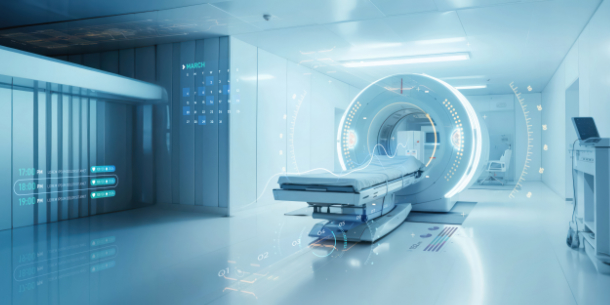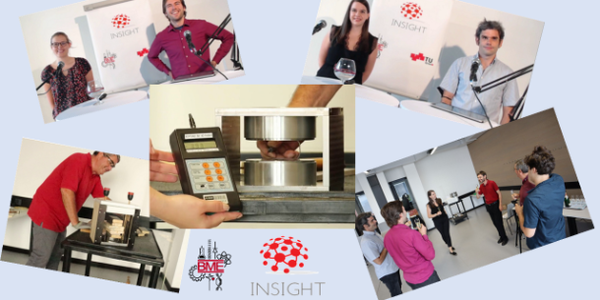
Quick Facts
To acquire this specialist knowledge, you can complete the major in Biomedical Instrumentation and Sensors as part of the following master’s degree programme:
The major includes courses to the extent of 50 to 60 ECTS credit points.
Biomedical Instrumentation and Sensors in Degree Programmes
Content of the Major
The major ‘Biomedical Instrumentation and Sensors’ is designed for students who feel attracted by the world of analogue electronics, sensors, transducers and actuators which operate in a complex universe of (bio)physical and (bio)chemical phenomena.
A well-balanced mix of theoretical and practical courses gives a profound introduction into the art of hardware design for biosensors and bioinstrumentation. This design is fascinating but also sophisticated and challenging, as even the smartest digital post-processing is unable to recover diagnostic information, once it has been lost in the noise of a suboptimal front-end. The students will develop awareness for the crucial parts of sensor interfaces and signal conditioning hardware, following a highly interdisciplinary approach and integrating detailed knowledge from many research and engineering areas like physics, biochemistry, nanotechnology, mechatronics, microfluidics etc.
In particular the students who choose this major will learn
- to understand and model the complex interaction between biological systems (tissues, organs, living beings) and sensors, measurement instrumentation and actuators
- to understand the working principles of sensors and transducers including their non-idealities
- to design bioinstrumentation, focusing on the signal conditioning interfaces between analogue and digital world
- to analyze and interpret the sensor signals and to recognize artifacts
- the art of optimizing the signal/noise ratio and hardware-based signal-preprocessing
- to integrate the analogue interfaces into digital data processing system
Contact
For questions on the content of the Major:
deansoffice.csbme@tugraz.at
Faculty of Computer Science and Biomedical Engineering
For questions about admission:
study@tugraz.at
Biomedical Instrumentation and Sensors Research

Research areas
Selected topics are, among others:
- Bio-Optics
- Chemical Analytics
- Molecular diagnostics
- Physical effects for sensors
- Bionanotechnology
- Biosignal processing
- Medical Instrumentation
- Individual bioinstrumentation projects
A further specialization towards medical electronics and biomolecular analytics is possible when choosing a related minor. During lab-exercises, practical projects and the master thesis several well-equipped modern labs can be accessed, among them one for NMR/MRI probehead design, one for medical sensors etc.
Teachers are engaged in research areas especially linked to hardware design for NMR and MRI, see e.g. experimental papers from the project CONQUER.
Students can participate in small projects for e.g. building their own NMR spectrometers or MRI systems on modern SDR platforms.

Student Project
The IBI is supporting the interdisciplinary student’s group ‚INSIGHT‘, the aim of which is to reproduce and further improve a published custom-built tabletop-MR scanner. The device should also be used as a prototyping-tool for MRI. As the DIY-scanner doesn’t measure more than half a typical office desk, it shall be used for teaching and practical hands-on experiments.


